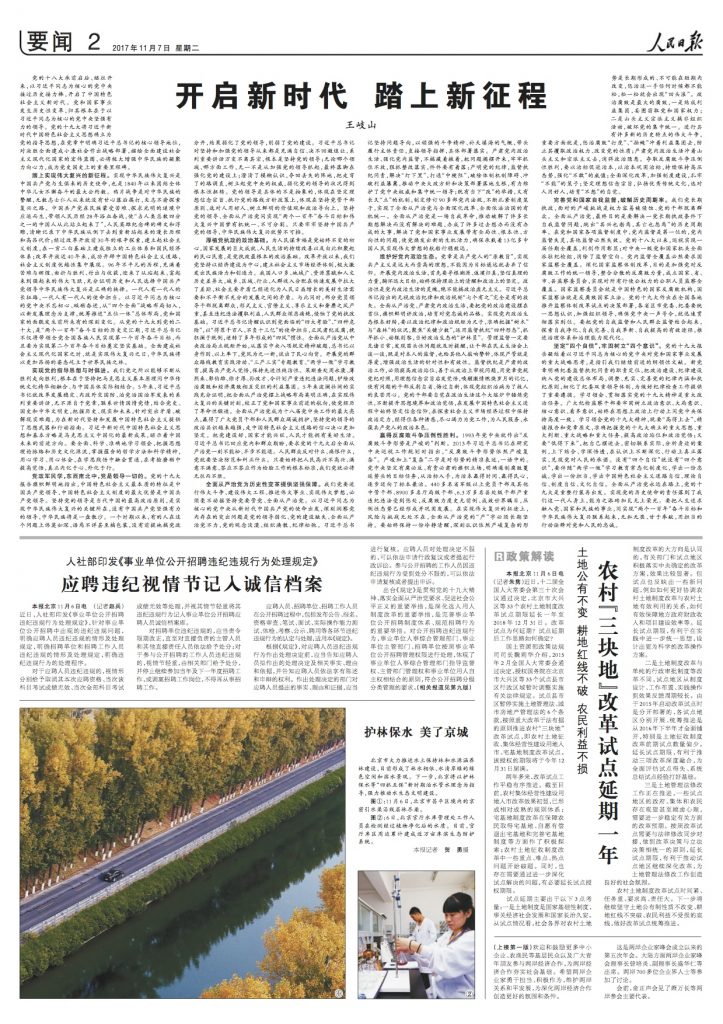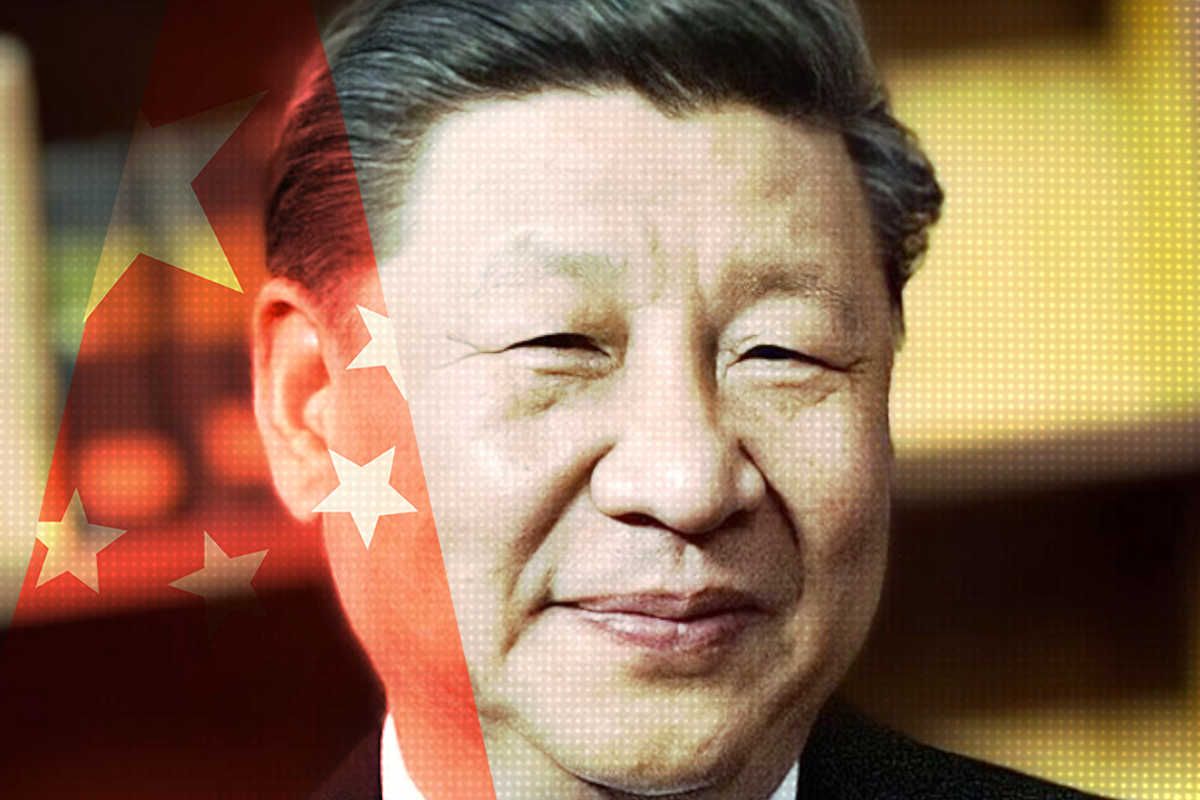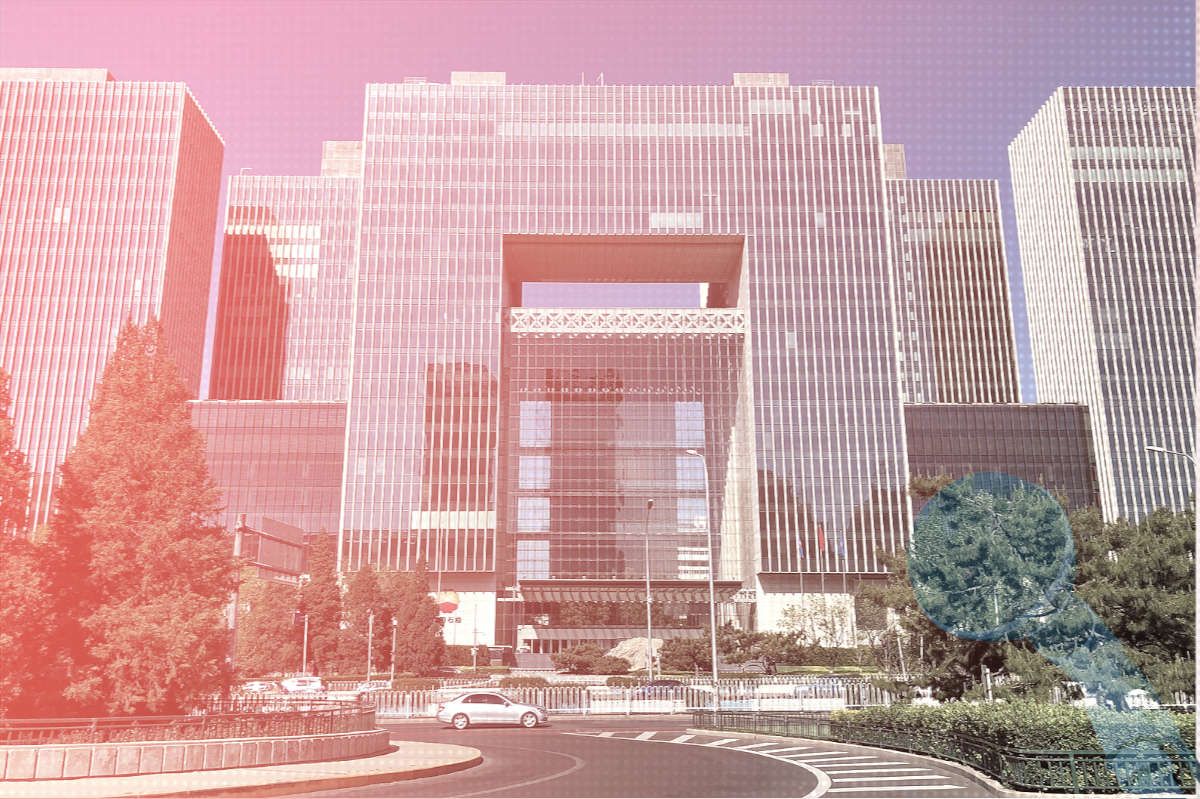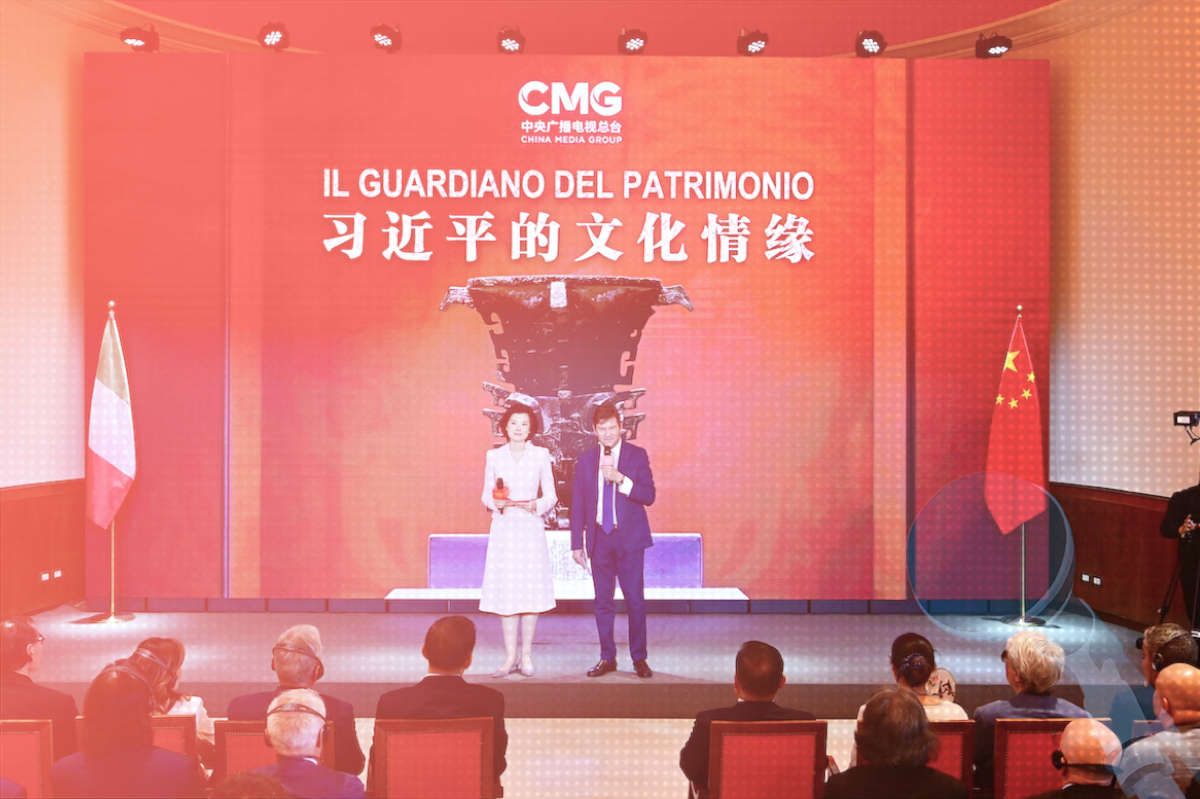China Newspeak
Strong Words from Wang Qishan
China’s feared graft-buster, Wang Qishan (王岐山), vacated his post as head of the Central Commission for Discipline Inspection at last month’s 19th National Congress, despite speculation he might be kept on beyond the unofficial retirement age of 68 to continue leading President Xi Jinping’s aggressive anti-corruption drive. But Wang isn’t out of the picture just yet. No quite.
A prominent article bylined by Wang appearing today on page two of the Chinese Communist Party’s official People’s Daily newspaper — and outlining in very robust language the “core” and unassailable status of Xi Jinping, the iron principle of Party rule of everything, and the glorious results of the anti-corruption campaign — quickly drew speculation from overseas Chinese sites and social media.
A post on the website of New Tang Dynasty, a media organization aligned with the Falun Gong movement, argued that Wang’s language about the need to extend the anti-corruption campaign “makes people guess that he hopes to return to the center of Party power.” A few even suggested the article might be a warning shot across the bow of other senior figures in the Party.
Reading Wang Qishan’s latest article on the People’s Daily, looks like Wen Jiabao is now in hot water.
— Luna Lin (@LunaLinCN) November 7, 2017
These suggestions, however, should probably be dismissed immediately as premature. In fact, Wang’s article, which was shared across many other sites and WeChat channels, including The Paper, wasn’t really fresh or much of a surprise at all.
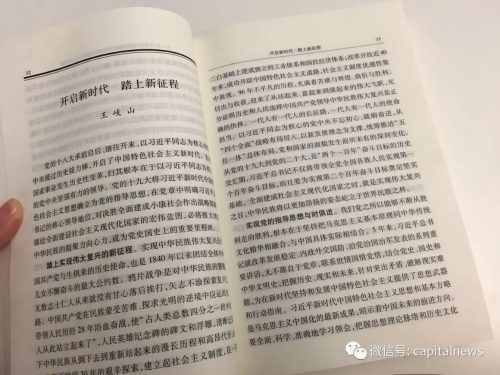
The WeChat account “Capital News” (长安街知事), operated by Beijing Daily, the official Party newspaper at the Beijing city level, reported that the article had already been published in an “authoritative” — meaning official — study volume released for the 19th congress.
Parsing the piece (obviously from its own official angle), Capital News said Wang’s article could be understand through three basic concepts: 1) strict governance of the Party, a “highlight” of the work of the 18th Central Committee over the past five years (and of course the heart of Wang’s anti-corruption work); 2) the idea that “the Party leads everything” (an old Mao phrase very much coming back into vogue in recent weeks); and 3) the point that “political corruption is the highest form of corruption.”
The Wang article defined “political corruption” as “uniting as an interest group and seeking to seize the power of the Party and the government,” and as “resorting to sectarianism and engaging in non-organized events that damage the unity of the Party.”
Whatever significance Wang’s piece may have, it stands as an excellent illustrating of the sheer density of political jargon coalescing around Xi Jinping as the “core” leader of the Party, piloting it into a brave new future under his fresh banner of “Xi Jinping Thought.” Wang in fact refers to Xi Jinping as the “core” three times in just the opening paragraph of the article.
A partial translation follows.
OPENING A NEW ERA, STEPPING OUT ON A NEW PATH
开启新时代 踏上新征程
By Wang Qishan (王岐山)
People’s Daily, page 2
November 7, 2017
After the Party’s 18th National Congress, a time of historical transition, the Party’s Central Committee with Comrade Xi Jinping as the core took up the baton of history, opening a new era in socialism with Chinese characteristics. There were historic changes to the work of the Party and the government, and these were fundamentally rooted in the resolute leadership of the Party’s Central Committee with Xi Jinping as the core. The establishment at the Party’s 19th National Congress of Xi Jinping’s Thought of Socialism with Chinese Characteristics for a New Era as the Party’s guiding ideology, and the defining in the Party constitution of the core leadership status of General Secretary Xi Jinping, will raise the cohesion of the Chinese people in making strategic provisions for fulfilling the comprehensive building of a moderately well-off society and in laying out a comprehensive blueprint for the building of a modern socialist nation, making this an important milestone in the history of the Party and the country.
Setting Out on a New Journey to Achieving Great Rejuvenation. Achieving the great rejuvenation of the Chinese people is the historic mission of the Chinese Communist Party, and it is also the greatest common factor in the constant struggles of the sons and daughters of China since 1840. The Opium War was a wake-up call for the Chinese people, and countless Chinese with lofty ideals have striven against the odds to find the path to rejuvenation. The Chinese Communist Party was born out of the hardship of the Chinese people and the search for light amid adversity, and it lead the people through 28 years of war, so that “the Chinese people who made up one-fourth of the world’s population finally stood up.” . . . Through hardship and searching during the first 30 years of reform and opening, our socialist system was built, and on the foundation of impoverishment we built an independent industrial system and national economic system. Economic reform and opening is now closing in on 40 years, and the path of socialism with Chinese characteristics has successfully been opened, and the superiority of the socialist system is on full display. It has been a marvelous process of 96 years, full of hardship and splendour, hard turns and victories, losses and gains, until we have made a great flying leap from standing up, to becoming prosperous, to finally becoming strong — fully showing the correctness of the people’s decision in choosing the Chinese Communist Party to lead the great rejuvenation of the Chinese people. Each generation has its own Long March. Each generation has its own mission to take on. The Party’s Central Committee with Xi Jinping as the core will not forget our original intention (不忘初心), will advance bravely . . .Realizing the Advancement of the Party’s Ruling Ideology With the Times. The basis of our Party’s continued great victories lies in its upholding of the fundamental principles of Marxism fused together with the essence of traditional Chinese culture, and linked to China’s concrete circumstances. Over the past 5 years, General Secretary Xi Jinping has delivered a series of important speeches dealing with development, reform and stability, with internal and foreign affairs and national security, with the governing of the Party, the nation and the military. All of these have originated from the Party Constitution, been connected with the situation of our country and the world, contiguous with Party history, national history and the history of Chinese civilization. They have grasped history, the present and the future to address outstanding contradictions and break through present difficulties, providing an ideological weaponry and compass for action to the development of socialism with Chinese characteristics. Xi Jinping’s Thought of Socialism with Chinese Characteristics for a New Era and its basic strategies are the latest fruit of the sinicization of Marxism, and the point China’s way forward into the future. . .
Party, Government, Military, Society and Education, East, West, South, North and Center, the Party Leads Everything (党政军民学,东西南北中,党是领导一切的). The report to the Party’s 19th National Congress clearly pointed out that the most fundamental character of socialism with Chinese characteristics is the leadership of the Chinese Communist Party, and that the greatest advantage of the the system of socialism with Chinese characteristics is the leadership of the Chinese Communist Party. Adhering to the leadership of the Party is the highest political principle of today’s China, and is the crucial factor in realizing the great rejuvenation of the Chinese people. Without the leadership of the Chinese Communist Party, the Chinese people would be like a sheet of loose sand (一盘散沙). For a period of time, some people have held back on this question (讳莫如深), avoiding the details (语焉不详), or even seeking to repackage things, going in without preconditions for separation of Party and government (没有前提地搞党政分开), weakening the building of the Party. General Secretary Xi Jinping has remained confident in adhering to and strengthening the leadership of the Party, refusing to avoid [the issue] or make concessions — and his series of important speeches is consistent on this point, adhering fundamentally to the leadership of the Party. Regardless of what sector, or what aspect of work, not a one can proceed without grasping the Party’s strengthened leadership, and the sure foothold is ultimately found in strengthening the building of the Party. . . Adhering to the leadership of the Party, and the full and strict governance of the Party, are inseparable from the realization of the “two centennial goals” and the Chinese dream of great rejuvenation. If only we adhere to the leadership of the Party, the great rejuvenation of the Chinese people is unstoppable.
Thickly Planting the Political Foundation of the Party’s Rule (党执政的政治基础). Seeking prosperity for the people is the original intention of the Party and has never changed. The great development achievements of the country, and the continued improvements in the lives of the people have won their hearts and are the ultimate political foundation of the Party’s rule. Since opening and reforms began, our Party has steadily centered [its work] on economic construction, on building a socialist economic system, unleashing the vitality and creativity of our people. Our country’s population is large, our land vast, our resources rich and our historical and cultural gaps substantial. The gaps have widened in the process of rapid development between the cities and the countryside, between regions and industries and incomes — and the principal contradiction facing our society is now advanced to the contradiction between unbalanced and inadequate development and the people’s ever-growing needs for a better life. At the same time, some Party members, leaders and cadres have become estranged from the masses, and formalism (形式主义), bureaucratism (官僚主义), hedonism (享乐主义) and extravagance are serious problems. Illegal plunder is a scourge hated by the people, and it has eaten away at the foundations of the Party’s rule. General Secretary Xi Jinping has clearly recognized that the Party faces “four great tests” (四大考验) and “four dangers” (四种危险), and he has risked ten thousand offenses to take up the task of cleaning up [the Party] and fighting corruption . . . The full and strict governance of the Party begins with the Central Committee abiding by the rules . . . The firm investigation into serious violations by the likes of Zhou Yongkang (周永康), Bo Xilai (薄熙来), Guo Boxiong (郭伯雄), Xu Caihou (徐才厚), Sun Zhengcai (孙政才) and Ling Jihua (令计划) have rooted out political corruption and broken up network of economic corruption. The great momentum over the past 5 years has shown that the strategy of strict governance of the Party is a correct one, and it has at a critical moment in the achievement of the great rejuvenation righted the ship of the Party and government in its forward course . . .
